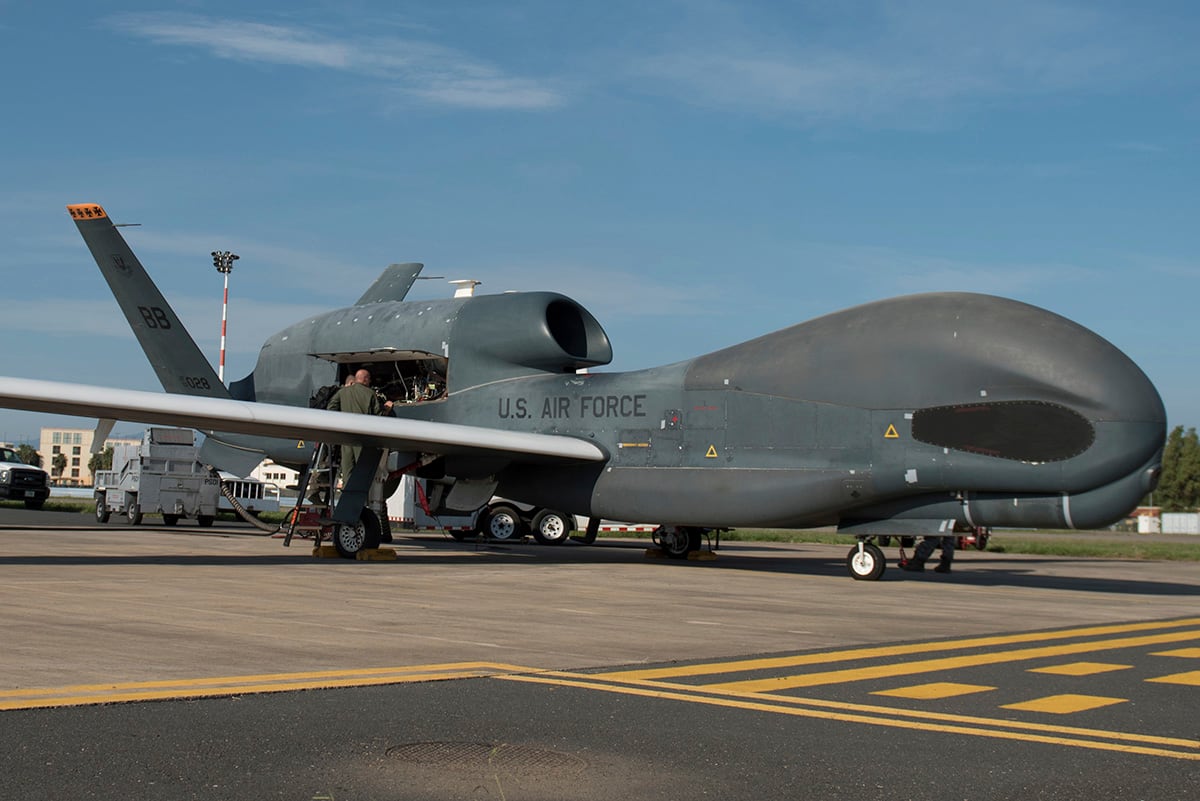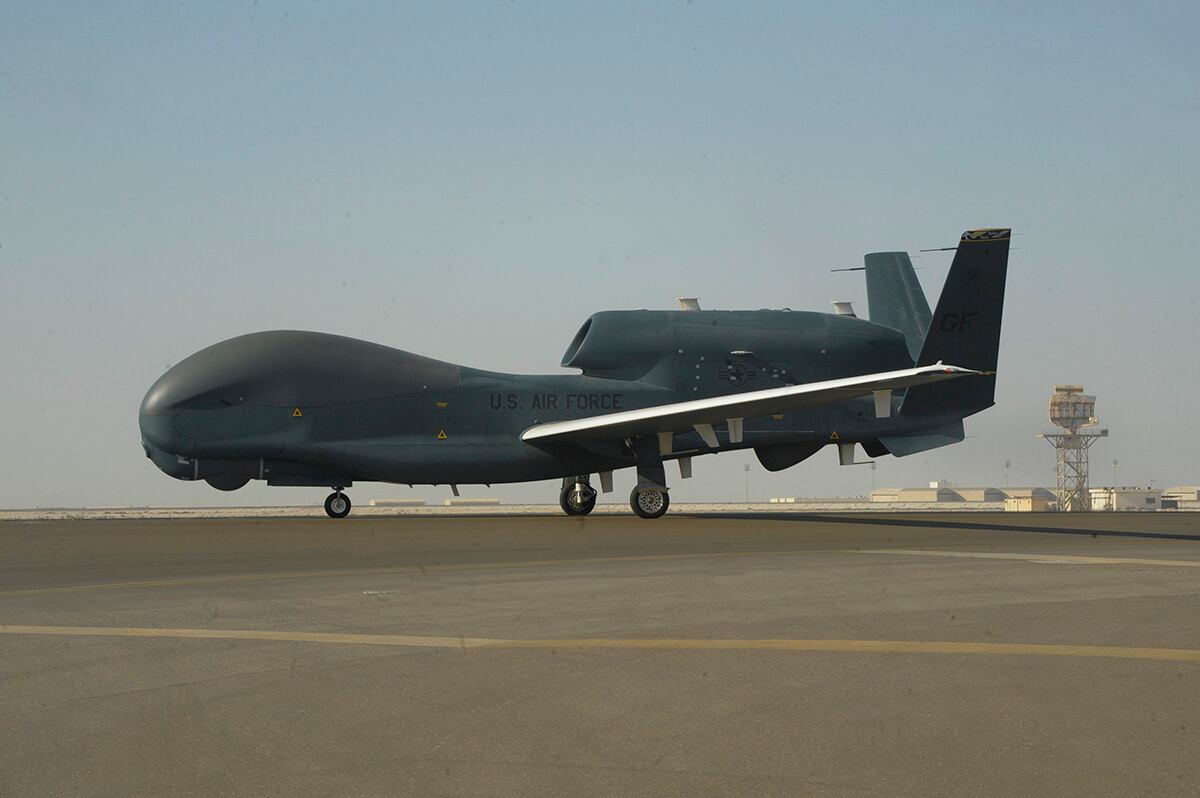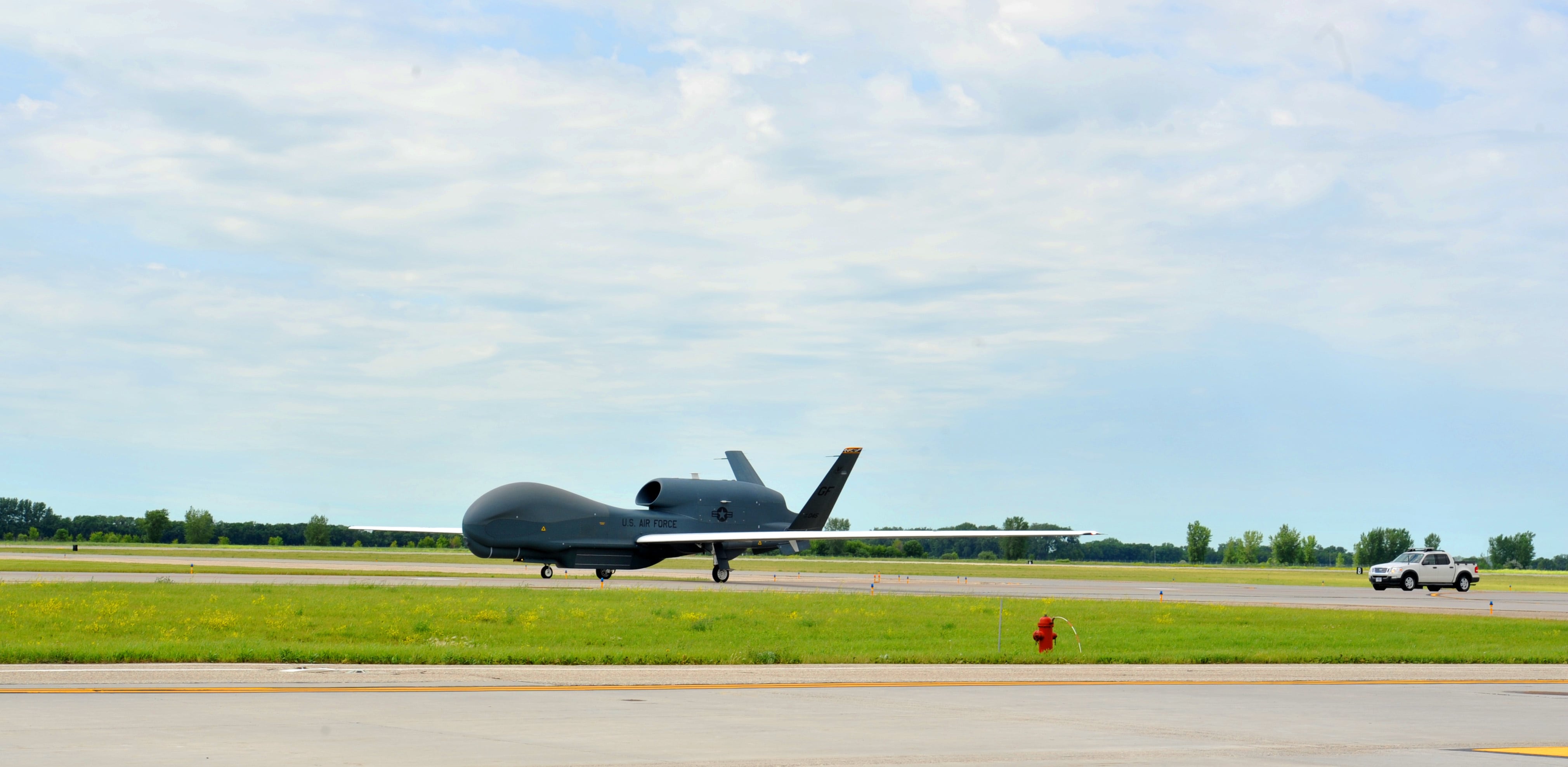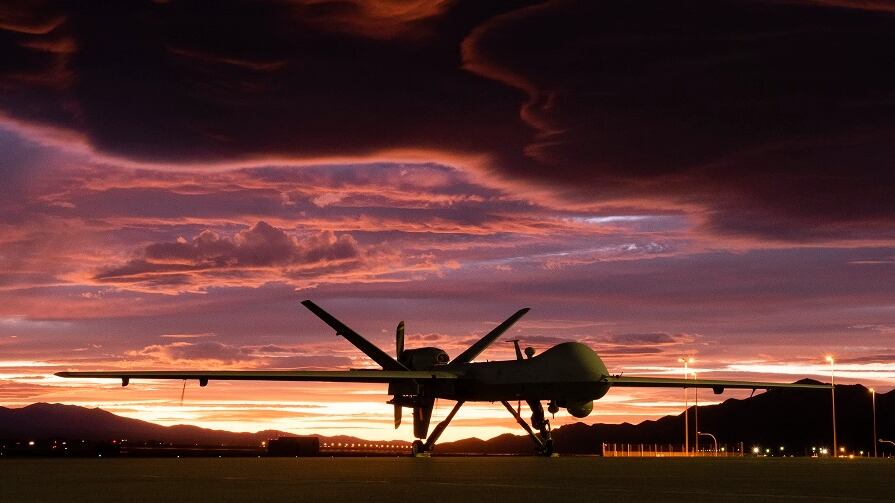Correction: A previous version of this story misstated the name of the Air Force’s Officer Training School.
Four years into an experiment to let enlisted airmen fly reconnaissance drones, the Air Force is signaling plans to wind down the program.
The proposed change — outlined in a Nov. 29 letter from Chief of Staff Gen. Charles “CQ” Brown and Chief Master Sergeant of the Air Force JoAnne Bass — would reroute the careers of about 75 enlisted airmen who fly the RQ-4 Global Hawk, one of the military’s most in-demand platforms.
The Air Force is asking Congress to let it ditch 24 of its 31 Global Hawks in the coming year, a move lawmakers appear likely to approve in the pending defense policy and spending bills.
RELATED

Military officials argue the drones are vulnerable to threats like surface-to-air missiles and could be replaced by spy satellites instead. Downsizing in 2022 would leave just seven RQ-4s in the inventory, drastically shrinking the number of airmen needed to fly them.
Master Sgt. Jarad Denton, a spokesman for Bass, told Air Force Times the memo aims to offer transparency to the remotely piloted aircraft community on the way forward. No decisions have been finalized, he said.
“Enlisted RPA pilots deserve to hear directly from their leaders on the current status of the program so they can make informed decisions regarding future service options,” he said.
Pilots who want to continue operating RPAs and are qualified to commission would be offered a spot in Officer Training School. Airmen who aren’t interested in becoming officers can instead pursue career enlisted aviation jobs like flight engineer, aircraft loadmaster or refueling specialist.
“For those airmen either not eligible or desiring of a commission or CEA position, they will be offered an opportunity to return to their previous career field, or retrain to another enlisted [specialty] or developmental special duty assignment,” Brown and Bass wrote.
RELATED

While the suggestion laid out can work well for airmen who wanted to become an officer anyway or were interested in other enlisted jobs, it may also convince people whose military service contracts are nearly finished not to reenlist.
The service said it is committed to keeping and supporting its current enlisted RPA pilots as well as those picked to join them in the future. Denton said no selection boards are scheduled right now.
Enlisted airmen were brought in to bolster the RQ-4 Global Hawk enterprise in 2017, as commanders around the world pleaded for more overhead surveillance of the areas they defend. It marked the first time since World War II that the Air Force made an exception to its rule that only commissioned officers are allowed to serve as pilots.
USAF aimed to train 100 enlisted RPA pilots by 2020 but remains about 25 people short. Denton did not answer how many RQ-4 pilots the service may need in the next few years as the platform retires.
“You inherited this challenge where the direction of our enlisted RPA pilot program was not set in stone,” the leaders wrote. “No doubt, the uncertainty has been a weight on you and your families.”
RELATED

In August, Bass told Air Force Times that the service was considering expanding the enlisted drone pilot program — an idea that now appears to be scrapped amid the Air Force’s retirement plans.
Earlier attempts to divest the Global Hawk and other surveillance aircraft have been quashed on Capitol Hill. This year, though, lawmakers haven’t objected to shrinking the RQ-4 force.
While the Senate Appropriations Committee is in favor of taking 24 Global Hawks out of combat as requested, it doesn’t have the boneyard in mind. Instead, lawmakers want the Air Force to repurpose the drones to collect data on hypersonic missile tests.
RELATED

Some of the less-advanced RQ-4s have already headed to the Pentagon’s test enterprise, prompting senators to suggest the Air Force do the same for newer Block 30 drones.
Senate appropriators have also preemptively proposed protecting a later model, the RQ-4 Block 40, from retirement in their fiscal 2022 legislation.
Lawmakers did not mention Global Hawk retirements in a joint version of the defense policy bill released Tuesday. However, the legislation says Congress wants to hear from regional commanders about how overhauling the Air Force’s intelligence, surveillance and reconnaissance inventory would affect global operations.
Rachel Cohen is the editor of Air Force Times. She joined the publication as its senior reporter in March 2021. Her work has appeared in the Washington Post, the Frederick News-Post (Md.), Air and Space Forces Magazine, Inside Defense, Inside Health Policy and elsewhere.




